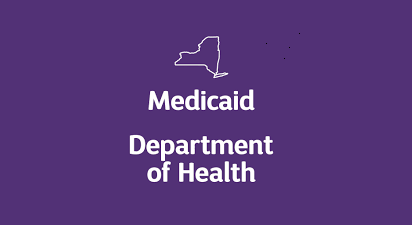As our loved ones age or experience health challenges, choosing the right type of care becomes an essential part of ensuring their safety, comfort, and well-being. Traditionally, nursing homes have been seen as the default option for individuals who require long-term care or ongoing medical support. However, in recent years, many families have begun to explore home health care as a viable alternative. Home health care offers a range of benefits that can make it a safer, more comfortable, and often more affordable choice than nursing home care. Let’s explore why home health care is increasingly becoming the preferred option for many families.
1. Personalized, One-on-One Care in a Familiar Environment
One of the most significant advantages of home health care is the ability to receive personalized care. In nursing homes, caregivers and medical staff often have to manage the needs of many residents, which can sometimes result in a lack of individualized attention. With home health care, individuals receive dedicated, one-on-one care from a skilled nurse, personal care aide, or therapist, ensuring that all their specific needs are met.
This type of personalized attention is particularly beneficial for patients with chronic conditions, mobility challenges, or cognitive issues, as the caregiver can adapt to their unique medical and emotional needs. Moreover, being cared for in a familiar home environment allows patients to maintain a sense of control and comfort that can significantly improve their overall well-being.
2. Lower Risk of Infections and Illnesses
Infection control is a growing concern in long-term care facilities, especially after the COVID-19 pandemic. Nursing homes, by their nature, house many residents in close quarters, which increases the risk of infectious diseases spreading. Even with strict protocols, it can be difficult to prevent outbreaks when so many people share common spaces and healthcare resources.
Home health care dramatically reduces the risk of infection, as individuals remain in their own homes, limiting their exposure to other people and potential illnesses. With fewer interactions outside of their immediate family or caregivers, patients are less likely to contract infections such as the flu, colds, or other communicable diseases that can spread quickly in a communal setting.
3. Maintaining Independence and Daily Routine
For many people, especially seniors, the ability to maintain independence is a crucial factor in their emotional and mental health. Home health care allows individuals to live according to their own schedule and retain control over their daily activities. They can wake up, eat meals, engage in hobbies, and see visitors on their own terms, all while receiving the necessary medical and personal care.
Nursing homes, on the other hand, typically operate on a structured schedule that may not align with an individual’s preferred routine. For those who value their autonomy, this can feel restrictive. Home care supports independent living while still providing necessary medical assistance, giving patients the best of both worlds.
4. Enhanced Emotional Well-being and Comfort
Emotional health plays a significant role in overall recovery and quality of life. Being in familiar surroundings, such as one's own home, surrounded by personal belongings and family, can foster a sense of security and well-being that may be lost in institutional settings. This can be particularly important for individuals dealing with conditions like dementia or Alzheimer's, where familiarity with their environment can reduce confusion and anxiety.
Staying at home also allows individuals to remain close to family and friends. This proximity can improve emotional health, reduce feelings of isolation, and strengthen support systems, all of which are crucial to both mental and physical health. Nursing homes, by contrast, may create a sense of disconnection, as residents are removed from their usual social networks and may struggle with feelings of loneliness.
5. Customized Safety Measures for the Home
One common concern about keeping an aging loved one at home is safety. However, home health agencies work closely with families to assess the home environment and recommend modifications to ensure that the individual can live safely. This might include adding grab bars in bathrooms, securing rugs to prevent trips and falls, improving lighting, or making necessary adjustments to doorways and stairs.
By customizing the home to meet the specific needs of the patient, the risk of falls and other accidents can be greatly reduced. In fact, many home health care providers offer ongoing evaluations to ensure that the home remains a safe and suitable environment as the individual’s needs evolve.
6. Cost-Effective Care with Flexible Options
When considering long-term care options, cost is often a major factor. Nursing homes can be expensive, particularly for those who need extended stays or specialized care. While home health care also comes with costs, it can often be more affordable, especially when care needs are not 24/7. Home health care allows families to tailor the amount of care needed, whether it's daily check-ins, weekly therapy sessions, or 24-hour support.
In many cases, families can also combine paid home health services with informal caregiving from loved ones, further reducing costs while ensuring that their loved one gets the care they need. This flexibility is one of the reasons why home health care can be a more sustainable long-term option for many families.
7. Support for Complex Medical Needs
For individuals with chronic conditions or those recovering from surgery, home health care provides access to skilled nursing and therapy services that are tailored to their specific medical needs. Registered nurses, physical therapists, occupational therapists, and other professionals can provide everything from wound care to medication management, all in the comfort of the patient’s home.
This level of medical support ensures that patients receive the same high-quality care they would in a nursing home, but without the need to leave their home or adjust to a new living environment. Home health care agencies can also coordinate with doctors, pharmacists, and other healthcare professionals to ensure seamless care that addresses all aspects of the patient's health.
8. Caregiver Involvement and Family Connection
Home health care encourages family involvement, which can be crucial in providing emotional support and advocating for the patient's needs. Family members often play an active role in caregiving, whether it's assisting with daily tasks, communicating with healthcare professionals, or simply offering companionship. This involvement strengthens family bonds and allows for a more cohesive care experience.
In nursing homes, family involvement can sometimes be limited to scheduled visits, making it harder to stay engaged in the day-to-day care of a loved one. Home care keeps families involved and allows them to maintain an important role in their loved one’s care plan.
Conclusion
Home health care is emerging as a safer, more personalized, and cost-effective alternative to nursing homes. It provides individuals with the opportunity to receive high-quality medical and personal care without having to leave the comfort of their home. From reducing the risk of infections to promoting emotional well-being and independence, home health care offers a wide range of benefits that make it an appealing option for families seeking the best possible care for their loved ones.
If you’re considering care options for a family member, take the time to explore how home health care could provide the support they need while ensuring their safety, comfort, and dignity. With the right care team and modifications, home health care can be a reliable and compassionate choice for aging or recovering loved ones.










